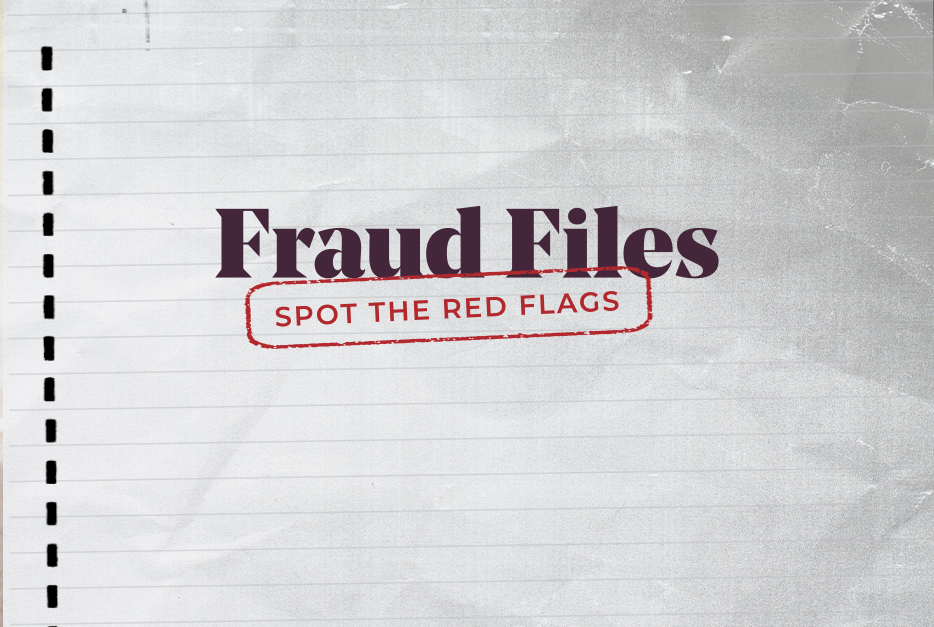Fraud Files: A close call for help
It’s one thing to hear about common scams — it’s another to recognize it when it happens to you. To help you spot the warning signs of fraud, we share real-life stories of the types of scams we encounter every day. To protect the identities of those involved, names and details of this story have been changed. As you read the story, try to identify what type of fraud occurred and catch the red flags of the scam.
What happened
Many of us feel called to help those in need, especially when it comes to children, but what should we do when that call comes from a strange number?
Sam has always enjoyed meeting new people and looks for every opportunity to get to know someone better. So, when he received a random message through WhatsApp on his phone, his first thought wasn’t to ignore it but to engage in conversation to see how he might know this person.
Through a bit of friendly messaging back and forth, Sam found out that Jen was a Sergeant who had travelled to a foreign country to help build a new orphanage. Sam was interested to learn more about the work Jen was doing, and the two chatted through WhatsApp for several days. Near the end of the week, Jen told Sam that they might have to stop building the orphanage if they couldn’t raise $25,000 by the following week. Sam felt sad for those children who might not have a safe place to stay while they wait for their permanent homes, so he offered to send Jen the money.
That Friday afternoon, after he received the information he needed from Jen, Sam came into an SCU branch to request a wire transfer for $25,000.
The scam
When Sam approached the Member Service Representative (MSR) and explained he’d like to send money to a foreign country to support the building of an orphanage, the MSR noted a few red flags:
-
Contact: During their conversation, Sam told the MSR that he met Sergeant Jen through a WhatsApp message and that they’d been communicating a lot over the past several days. The MSR found it odd that Sam wanted to send a large amount of money to someone he had never met in person.
-
Military rank: During his conversation with the MSR, Sam only referred to Jen by her military rank. The MSR recognized this as a sign of fraud, as she’d heard previous stories of scams where the person insisted on being called by their rank.
-
Timing: Asking Sam to send a wire transfer at the end of the day on a Friday is a common tactic used by scammers because it allows them to move the money over the weekend before anyone realizes it was fraud. The fact that Jen asked Sam to send the money on a Friday afternoon also prompted the MSR to be suspicious.
While there is no shortage of channels available to help us connect with others online, it’s important to pay attention to each interaction and to ask a lot of questions. You can do a Google search for the person’s name, search the number they are using, and do a reverse image search with any photos they send you. If you include the word ‘scam’ to your search, you’ll see any results that indicate their past involvement in known fraud. These simple steps can save you from falling into their trap.
What happens on our side
Because the request seemed unusual, the MSR escalated it to their manager for further review and investigation before completing the request. The MSR manager pulled Sam into a private office so she could have a more in-depth conversation with him about SCU’s concerns. Sam wasn’t convinced this was a case of fraud, but the manager explained SCU would continue to investigate and, as it was late in the day on a Friday, froze the transaction to protect his money.
Over the course of their research, SCU discovered this was indeed a scam. On Monday morning, the MSR manager contacted Sam to let him know they were able to confirm this was a case of fraud. Still not wanting to believe it, Sam took some time to think about it and a few days later he came into the branch to cancel the wire transfer.
In this case, SCU was able to prevent Sam from losing his money but not everyone is that lucky. That’s why it’s important to be cautious and to look for signs of red flags. If you’re uncertain, and especially if the person asking for money requests that you not tell anyone, you can always contact SCU and ask if they are aware of any similar cases of fraud.
Key takeaway: Scammers might try to create a feeling of closeness with you so you’re more likely to send them money. Then, when they have your money, they’ll disappear, and you’ll have no way of contacting them again. Before engaging in conversation with someone new online, always ask questions and do your research.
Sometimes, we can help spot and stop a fraud scam before a member loses money. Unfortunately, this is not always the case. Preventing fraud is an important responsibility we all share. SCU strongly recommends that members remain vigilant and learn to protect themselves from falling victim to fraud. Visit our Fraud Prevention Centre to learn more about fraud and how to spot it, and if in doubt, reach out to SCU for help at 1.800.728.6440.
You can also check out the Canadian Anti-Fraud Centre for information on known scams.
Does this story sound familiar?
If this has happened to you, or someone you know, here’s how you can report it: scu.mb.ca/fraudprevention/reportfraud



